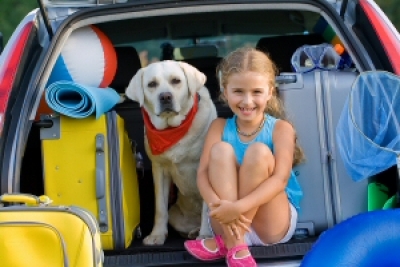Is your family like the many others who eagerly anticipate summer road trips? If you have done a summer road trip in the past, then you know that you can't just hop in the car and go. Before you drive off to enjoy the open road, it's important to be prepared for your trip. Take the time to check the vehicle you'll be driving and to pack properly; but remember to review your auto insurance policy. Following these few guidelines should make your road trip the kind of memorable adventure that you and your passengers hope for.
Have your car checked by your mechanic...
The National Highway Traffic Safety Administration (NHTSA) has published some great advice for planning a safe and stress-free summer road trip. Of course, it includes doing a complete inspection of the vehicle you'll be driving. They caution not to wait until the last minute. They recommend that you check the following systems on your car, truck, SUV or van well in advance of your road trip. Some or all of these checks should be done by a trusted mechanic.
- Cooling System —coolant level and need for service
- Fluid Levels — engine oil, windshield, transmission, brake, and power steering fluids
- Hoses and Belts —fittings and signs of wear
- Air Conditioning System – components and cooling function
- Lights — interior lights, turn signals, emergency flashers, headlights, brake lights and trailer lights, if any
- Tires – air pressure and wear on the tread for all tires including spare tire
- Wiper Blades – wear and tear on both passenger’s and driver’s sides
Check your insurance with your agent...
Will you be doing all the driving or sharing the driving with someone else? Will you be driving your own vehicle, someone else's or a rental car? Your auto insurance agent can help you assure that you will have proper coverage, no matter what your arrangements. Don't wait until after an accident occurs only to find that your insurance will not cover your claim.
Will you rent a car for your road trip?
Although the car rental company can provide insurance coverage, your current auto insurance policy might cover your rental vehicle. Moreover, your credit card company might also offer some reimbursement, should there be an accident. Well before the time for your trip, take the time to ensure that you will be fully covered but without duplication by finding out what coverages the rental company offers and what options the credit card company offers and then by calling your insurance agent for advice. To learn more, see what the Insurance Information Institute (III) advises regarding car rentals and insurance.
Be prepared, in advance, for roadside emergencies...
Seasoned travelers recommend packing a Roadside Emergency Kit to help, should you be stranded during your road trip. The National Highway Traffic Safety Administration (NHTSA) suggests that your kit should include fresh drinking water, non-perishable food, a flashlight,basic repair tools, jumper cables, flares and white flag as well as work gloves. Of course, you will want to take along a cell phone and have a charger in the vehicle. Even though GPS devices are popular navigational tools, it's still wise to take along a map of your travel route as a back-up reference.
Plans Complete? Enjoy your trip...
Whether you plan all stops in advance or pick your route and make your plans on the fly as you go, the time you devote to preparing before taking to the road will e time very well spent.


 William M. Sparks 1945 - 2023
William M. Sparks 1945 - 2023



